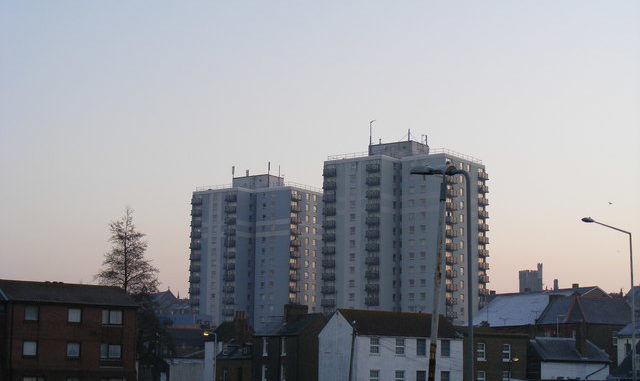
External wall cladding will be removed and replaced at five Thanet council housing blocks.
The works will be carried out at Trove Court, Kennedy House, Harbour Towers, Staner Court in Ramsgate and Invicta House in Margate.
A change of fire procedures has also been put in place at the Trove and Kennedy blocks in Newcastle Hill with residents now advised to evacuate the building in event of fire rather than to stay inside their homes. This follows guidance from Kent Fire & Rescue Service. The same procedures may be installed at other council blocks if KFRS advise it.
A waking watch is also in place at Trove and Kennedy. This means a 24/7 security patrol on the estate, checking for and removing fire hazards and raising the alarm in the event of a fire. The patrol will also assist the fire service on site with a managed evacuation.
Thanet council has details of residents that would need assistance in the event of an evacuation and the information is shared with KFRS.
Thanet council is also installing new alarm sounders in every flat, and once these have been put in place KFRS has advised that there will no longer be a need to provide the waking watch service.
The external wall insulation systems fitted consist of an insulation board that is fixed directly to the concrete structure with rendering applied to the outside. The installation as a whole is rated as of low combustibility.
As a precaution, to eliminate any risk linked to the insulation board, the council is replacing it with a completely non-combustible system.
Samples were previously taken of the external wall insulation and were submitted to the Building Research Establishment. As it is not Aluminium Composite Cladding it did not fall within the remit of the national testing programme that followed the Grenfell disaster in 2017.
In preparation for a programme of removal and replacement the buildings have been surveyed and results shared with Kent Fire and Rescue Service and the council’s independent fire risk assessors.
A start date for the cladding replacement has not yet been set but the work will go out to tender shortly.
A Thanet council spokesperson said: “A letter has been issued to tenants at Kennedy House and Trove Court in Ramsgate to advise them of precautionary safety measures being taken. There is no cause for alarm and we hope that the steps we are taking will help to provide additional reassurance to our tenants.”
Some £14.5 million was set aside by Thanet council last year to cover a three year fire safety upgrade programme at its housing blocks.
The scheme includes an overhaul of fire safety arrangements, such as compartmentation works, fire doors, alarms, smoke vents, and flat entrance doors, as well as upgrades to electrical installations and CCTV.
Some £8.9million is being spent on works in 2021-22 and a further £61,000 in 2022-23.
The massive programme, includes redecoration and full structural, electrical and mechanical surveys so any additional essential works can be identified. The programme includes works at Brunswick Court in Ramsgate although the cladding replacement is not necessary at this block.
Several of the blocks have been plagued by deliberate fires in recent years, including Trove Court and Invicta House.

